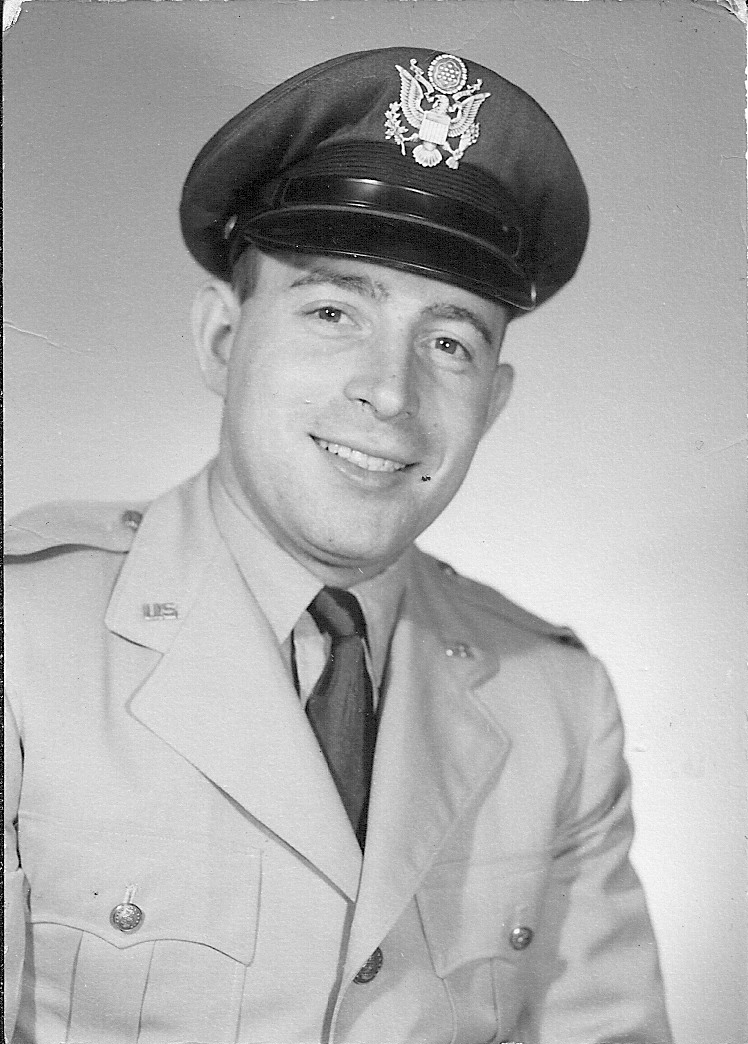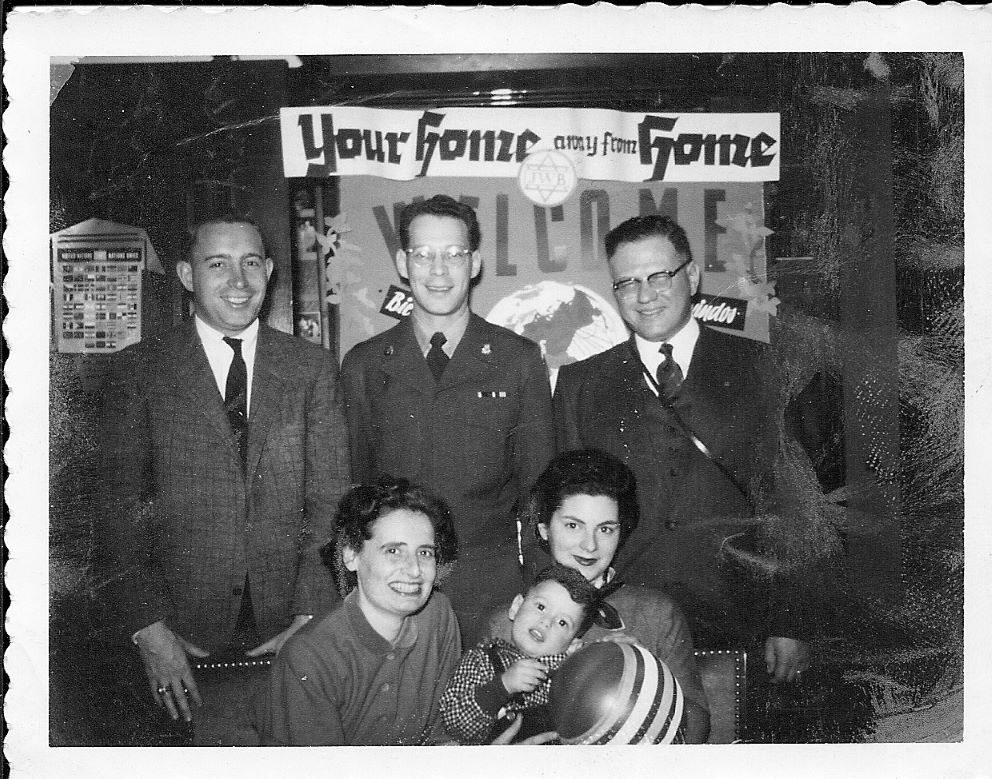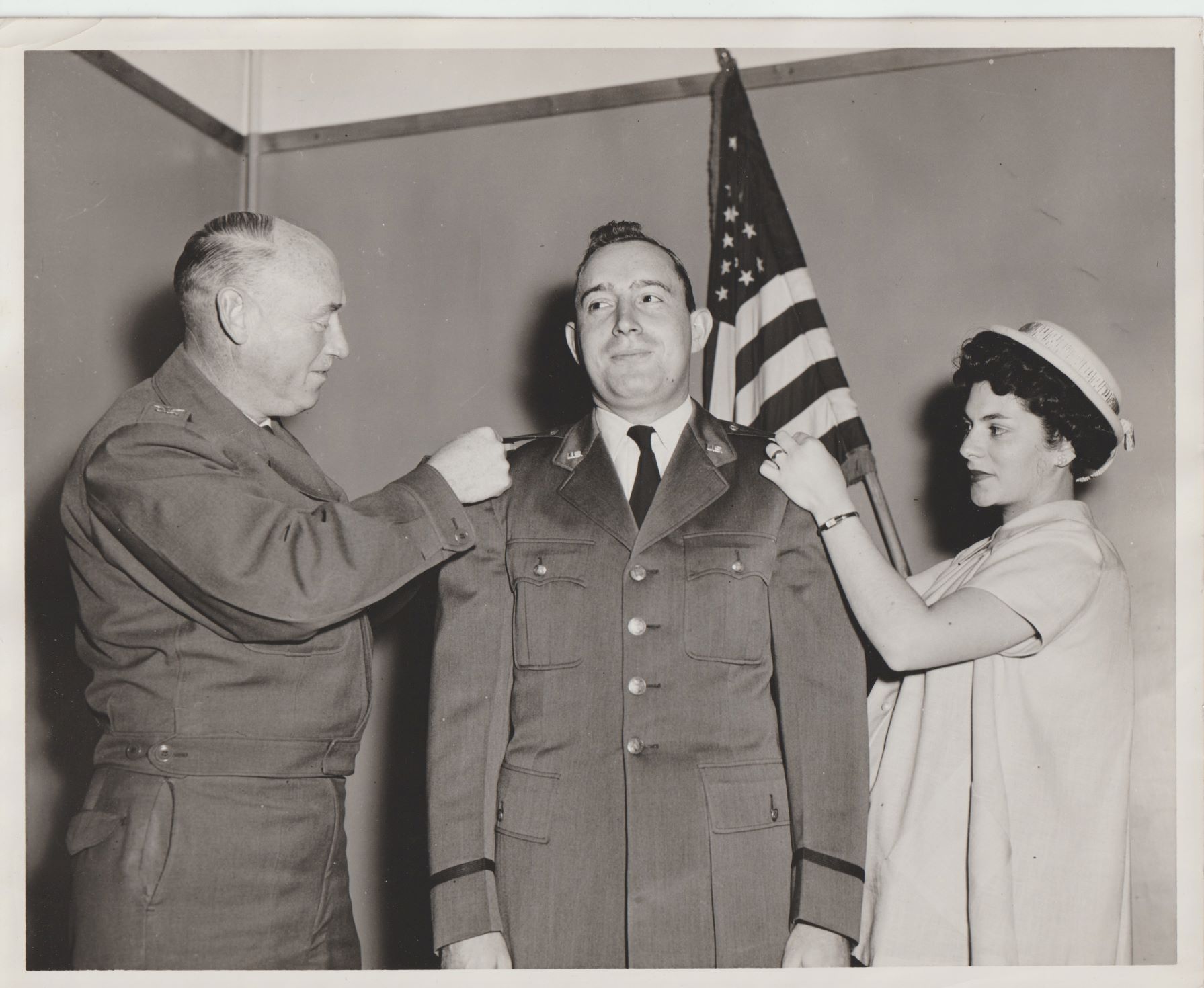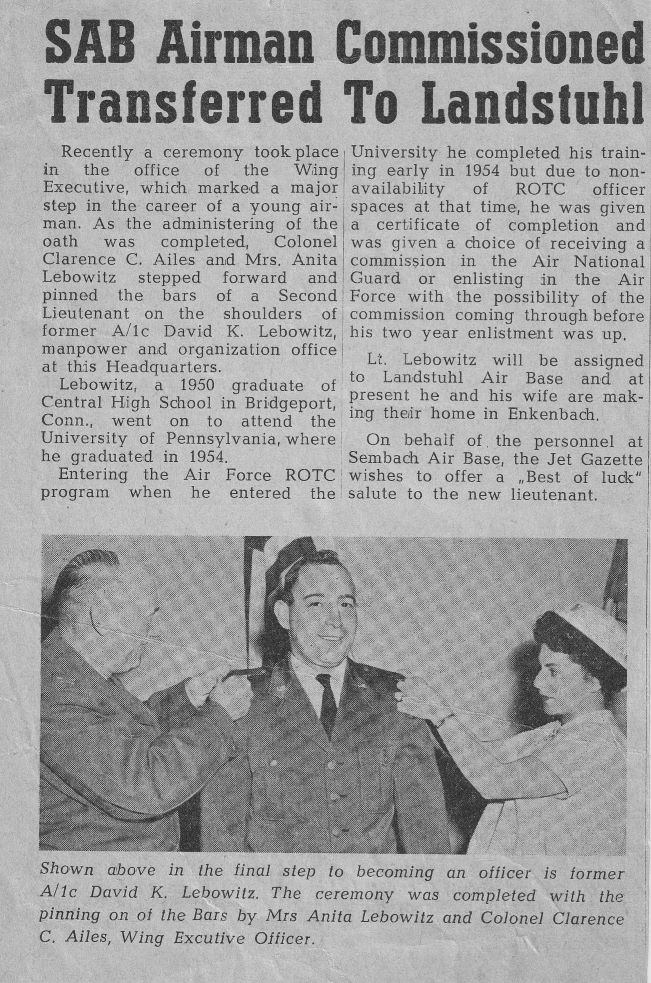Record date:
David K. Lebowitz, Captain
“During the Cold War… it wasn't easy and there were shades of grey...” writes John Le Carre. This, plus the complexity of living as a Jew in Germany in the 1950s, captures Captain Lebowitz’s story which he shares with warmth and humor.
Born in 1932, Lebowitz grew up in Bridgeport, Connecticut during the Depression and World War II. Although the family’s mattress factory sustained them, he had fewer options than those born just a few years later. After completing high school, he studied at the Wharton School of Business at the University of Pennsylvania. He was “heir apparent” to the family business although he would have preferred to explore opportunities in the greater business world.
With the Korean War in progress, Dave and his college roommate joined Air ROTC because it was a reliable way to get a student deferment. This meant taking courses on military subjects and doing drills.
In July 1953, the armistice ending the Korean War meant that there would be a RIF, reduction in force. When Lebowitz and other ROTC-ers were training that summer at Stewart Air Force Base, New York, they were told that they would not be commissioned as second lieutenants after all. Dropping out of ROTC would have negative consequences so Lebowitz chose to persist.
After graduation from Wharton, Lebowitz gave his girlfriend her engagement ring. He enlisted in the Air Force when he graduated since Army conscription was still in effect but the Air Force allowed him to enlist for two years rather than the normal enlistment of four years. He was bussed to Sampson Air Force Base in Geneva, New York. Because of his prior experience, he was only required to do “re-enlistee training.” Lebowitz was given his AFSC, Air Force Specialty Code: Manpower Management Specialist.
He was to be shipped to Germany, so he decided to use his two weeks of pre-embarkation leave to get married. His determined bride ensured that the wedding and gown of her dreams materialized. Next, Lebowitz reported to Camp Kilmer, New Jersey. Luckily, he could visit his wife who was staying nearby at the home of friends. He boarded the ship at the end of September. Being on the lowest level “E deck” in an accordion-like stack bed was not for the claustrophobic but he eventually reached his destination of Sembach Air Force Base. He was assigned to the 66th Tactical Reconnaissance Wing.
In the 1950s, the war reparations funds that Germany was obliged to pay the Allies, covered many costs of US military bases, housing, and vehicles there. Lebowitz lived in comfortable barracks with plenty of amenities on the base. With the arrival of his wife at Thanksgiving, the two were not eligible for the “goodies.” On his low E2 salary, they rented two rooms upstairs of a home owned by a German couple in Enkenbach, heated sporadically by a coal stove, and lacking an indoor toilet. The situation was particularly tough on his college-educated wife who was not permitted to work.
The couple befriended the Jewish Army chaplain, Rabbi Dreyfus, and family, who lived at Vogelweh and they began to attend Friday night services. This enhanced both their religious life and their social life. Lebowitz also credits the wives for baking cakes and chatting with lonely Jewish soldiers in a Donut-Dolly-like fashion.
Lebowitz and his wife felt uneasy revealing their faith to the locals. Seeing older teenagers in town who would have spent their formative years in Hitler Youth was not reassuring. In contrast, their landlady upon noticing the tablets of Rabbi Dreyfuss’ uniform (rather than a cross), began to cry, recalling how her husband learned of the “disappearance” of their business acquaintance, a Jewish miller.
Lebowitz’s boss, a master sergeant, was thrilled to unload the duty of teaching the Air Force Management Methods Course on him. The Air Force ran a multi-level competition with cash prizes for reports which effectively explained how to improve the execution of one’s job. As a final exam, Lebowitz had his students apply methods learned in the course to these reports. Many of the students were indeed winners! Although Lebowitz was at a lower rank than his superior officer students he was made to feel like an equal. He appreciated the connections and their help such as procuring a difficult-to-find transformer.
A year later his daughter was born. Luckily, Lebowitz’s salary doubled once he was commissioned for a new assignment at Landstuhl Air Force Base so that they could rent a unit with conveniences like indoor plumbing!
He was now assigned to the 501st Tactical Control Group, or Tactical Control Wing Provisional since two “groups” were merged. Manpower was necessary since the wing was responsible for traffic control both for military and commercial flights in Europe. Control and early warning were conducted through radar equipment placed on mountaintops. Lebowitz was charged to calculate how many people should be on each site. He created manning documents for stations right above enemy territory and recalls an incident when US radar was picking up Russian MiGs taking off due to a civilian Italian pilot who mistakenly veered off course from the Berlin Corridor.
In contrast to Sembach, he was pleasantly surprised to meet Jews at Landstuhl and initially reported to Major Sam Levy, whom he knew from the Friday night services. Levy designated Lebowitz a mortuary officer as well as a member of the Court Martial Board. Although these positions seemed initially to be a “joke,” the implications, in particular, of a tainted murder trial proved to be grave.
When the two years were up, Lebowitz and his wife moved to Connecticut and he plunged into the family mattress business. He was also obliged to six years of inactive duty in the Reserves.
He and his wife moved to Chicago a few years later and raised their three children there. They maintained some lifelong friendships with those they met in Germany.
Serving overseas proved to be a maturation process for the young couple. While Lebowitz never aspired for a military career, he saw his enlistment as his duty. He thinks today's young men and women would also benefit from serving the country.
.

















